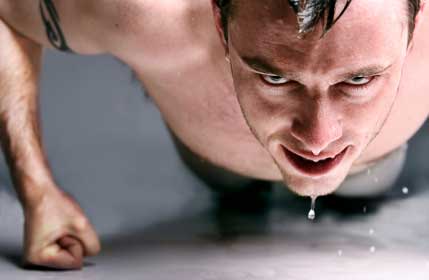The Impact of a 24-h Ultra-Marathon on Circulatory Endotoxin and Cytokine Profile.
Gill SK1, Hankey J1, Wright A1, Marczak S1, Hemming K1, Allerton DM2, Ansley-Robson P2, Costa RJ3.
Author information
1Sport & Exercise Science Applied Research Group, Coventry University, Coventry, United Kingdom.
2Faculty of Health & Life Sciences, Northumbria University, Newcastle upon Tyne, United Kingdom.
3Nutrition and Dietetics, Monash University, Notting Hill, Australia.
Abstract
The study aimed to determine circulatory endotoxin concentration, cytokine profile, and gastrointestinal symptoms of ultra-endurance runners (UER, n=17) in response to a 24-h continuous ultra-marathon competition (total distance range: 122-208 km) conducted in temperate ambient conditions (0-20°C) in mountainous terrain.
Body mass and body temperature were measured, and venous blood samples were taken before and immediately after competition.
Samples were analysed for gram-negative bacterial endotoxin, C-reactive protein, cytokine profile, and plasma osmolality.
Gastrointestinal symptoms were also monitored throughout competition.
Mean exercise-induced body mass loss was (mean±SD) 1.7±1.8% in UER.
Pre- and post-competition plasma osmolality in UER was 286±11 mOsmol·kg-1 and 286±9 mOsmol·kg-1, respectively.
Pre- to post-competition increases (p<0.05) were observed for endotoxin (37%), C-reactive protein (2 832%), IL-6 (3 436%), IL-1β (332%), TNF-α (35%), IL-10 (511%), and IL-8 (239%) concentrations in UER, with no change in the control group (CON; n=12) observed (p>0.05).
Gastrointestinal symptoms were reported by 75% of UER, with no symptoms reported by CON.
IL-10 (r=0.535) and IL-8 (r=0.503) were positively correlated with gastrointestinal symptoms.
A 24-h continuous ultra-marathon competition in temperate ambient conditions resulted in a circulatory endotoxaemia and pro-inflammatory cytokinaemia, counteracted by a compensatory anti-inflammatory response.
Source


No comments:
Post a Comment